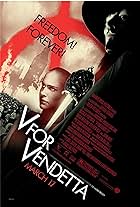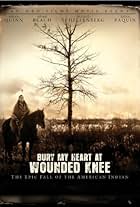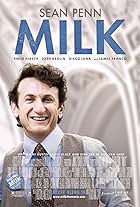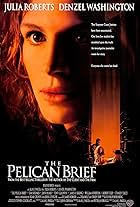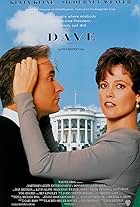POLITICAL MOVIES AND POLITICS IN MOVIES
The list is not intended as a ranking or recommendation. It includes films of various artistic qualities, including mediocre or even weak films. It is clear that it is impossible to find all political films, even if one adopts the very strict criterion that, for example, the place of action is the world of typically understood politics, or that the heroes are politicians. Even such films are thousands. So it is mostly about the most typical cases, but representing different types of political cinema. More often, however, I included films that referred directly and directly to politics, and I was definitely more selective about those films that referred to politics indirectly and contextually.
There are both very famous films, but also less popular ones. All possible genres and types of films (feature films, documentaries, animations, experimental films, series). I also tried to look for examples from different countries from all continents. All this to make the list as representative as possible. Many of the films I've seen, others I've read about, but there are also many that I only included based on other lists, recommendations or suggestions.
The list includes different types of political cinema. They should not be seen as disconnected categories. Many films fit into different categories.
1) "Pure" political films, which are set in the world of politics, and the protagonists are politicians or people from the political environment, such as advisors to politicians. This includes both serious films and comedies or action films. In this case, it is mainly about the subject matter and place of action. These include films about political events, but also political biographies or films that show various political mechanisms.
As for genre conventions, here we have political dramas (e.g., Thirteen Days), in which we can watch political everyday life, the current routine, but also crisis situations; politicians here experience ethical dilemmas and experience moral or psychological problems. The second frequent group in this group are political thrillers (Z, JFK). Some of them fit more into the convention of a typical thriller, in which tension, suspense and the confusion of the main character are important; some variants here are conspiracy thrillers (I... comme Icare) or spy thrillers (Tinker Tailor Soldier Spy). Others are more like detective fiction, where the mystery matters (Murder at 1600), while still others resemble action films (Air Force One) or comedies (Wag the Dog). In the case of particular genre formulas of entertainment cinema, stylistic solutions typical of certain genres begin to be at least as important as political references (e.g., suspense, chases, puzzles, stuntmen, fast-paced action, funny situations).
2) Films in which a political or ideological interpretation of social reality is very clear. On the one hand, these are propaganda films /e.g. Nazi, communist, war/ ; on the other hand, these are films that show opposition to authority. These films can support the system, be in opposition, but they can also comment on how people's ordinary daily life is politicized. What particularly distinguishes these films from the first group is that in this case, the place of action is not necessarily in the realm of politics. So we watch activists, rebels, rebels, terrorists and sometimes ordinary people who go to demonstrations. Such rebels are often the films of Ken Loach, such as I, Daniel Blake.
3) Another example is films that show (they can do so in an ideologically committed way, but also in a more neutral or even entertaining way) how an individual is caught up in politics, often the big and official politics; but sometimes politics is only relevant as a general context, such as sudden changes and various political turmoil /e.g. Doctor Zhivago/. These individuals are usually ordinary people who do not get involved in politics because of their own motivations, but become victims of it. A special case here are films in which the victims of political turmoil are children /e.g. Machuca/.
4) A separate group is made up of films that, although they do not happen directly in the world of politics, but in areas that directly interface with it. A sphere that particularly interests me in this regard is intelligence. Thus, the list includes dramas, thrillers or espionage crime films that show how the secret services operate. I'm skipping the typical James Bond films here, and rather include those films that show the real-life interface between politics and intelligence institutions. Politics is not made explicit here, as in the case of the first group. Sometimes it is only implied or functions only as a general context. Example: A Most Wanted Man.
5) A separate group is made up of films that tell about various social problems, in which at the same time there is a political context /e.g. politics as a source of problems or an opportunity to solve them/. Several groups can be distinguished here:
A) Films about social problems that are often closely linked to the socio-economic policies of the state, such as unemployment.
B) Films showing global problems of the modern world: the social effects of globalization, or climate change.
C) Films about psycho-social problems, such as drug addiction or alcoholism, if they have some clear political context.
D) Films about structural social problems that provide an understanding that the social structure within a given system is based on antagonisms and contradictions that spill over into various spheres of collective life, not just official politics. This can include racial problems /e.g., Crash/, gender problems /The Kramer vs. Kramer/ or those concerning sexual minorities /Pride/.
6) Discursive films that discuss various topics in the public debate, becoming one of the voices in such a debate. Examples of such films are often courtroom dramas that deal both with the problem of justice in general, but also with specific issues that relate to it. An example would be films about the death penalty. Another type of films that will be included here are films that address bioethical dilemmas (e.g., abortion, euthanasia, etc.). Also of interest here are films about the media, especially their relationship with the political world.
7) Political metaphors. This is primarily about films that show metaphorically various regularities, mechanisms of political life, and the way the system works. At the same time, they do this without direct political references. The action of these films often takes place in a fantasy costume, the place of action may also be some deliberately isolated space or group, or these films will be screenings of various social and psychological experiments. Examples: Lord of the Flies, The Wave, 12 Angry Men.
8) Films that, even if they do not explicitly refer to politics or contemporaries are hard to find such links in older films, they have been treated as political in scholarly literature or reviews. For example, many Italian crime films from the 1970s were treated as part of political cinema because they showed the general corruption and corruption of public institutions without necessarily referring directly to politics.
9) Accidental political films. Films that do not refer to politics at all, even metaphorically, but were politicized because of various events or the intentions of politicians. I also include films that became subject to intervention by censors for various reasons, including non-political ones, such as morals. Since there may be many such cases, I have included here only some of the more typical examples, such as the film Priest, which became politicized in Poland because it told the story of the title character's homosexual dilemmas.
10) Stories that allow us to understand that films reflect very well the collective consciousness, social emotions, political climate, and that they are often a form of collective memory. Often it is not the subject matter, issues, place of action that expresses the political character of the film, but the less tangible symbolic, psychological, emotional sphere. This group also includes films that show the relationship between politics and art, such as Mephisto.
Enjoy!
There are both very famous films, but also less popular ones. All possible genres and types of films (feature films, documentaries, animations, experimental films, series). I also tried to look for examples from different countries from all continents. All this to make the list as representative as possible. Many of the films I've seen, others I've read about, but there are also many that I only included based on other lists, recommendations or suggestions.
The list includes different types of political cinema. They should not be seen as disconnected categories. Many films fit into different categories.
1) "Pure" political films, which are set in the world of politics, and the protagonists are politicians or people from the political environment, such as advisors to politicians. This includes both serious films and comedies or action films. In this case, it is mainly about the subject matter and place of action. These include films about political events, but also political biographies or films that show various political mechanisms.
As for genre conventions, here we have political dramas (e.g., Thirteen Days), in which we can watch political everyday life, the current routine, but also crisis situations; politicians here experience ethical dilemmas and experience moral or psychological problems. The second frequent group in this group are political thrillers (Z, JFK). Some of them fit more into the convention of a typical thriller, in which tension, suspense and the confusion of the main character are important; some variants here are conspiracy thrillers (I... comme Icare) or spy thrillers (Tinker Tailor Soldier Spy). Others are more like detective fiction, where the mystery matters (Murder at 1600), while still others resemble action films (Air Force One) or comedies (Wag the Dog). In the case of particular genre formulas of entertainment cinema, stylistic solutions typical of certain genres begin to be at least as important as political references (e.g., suspense, chases, puzzles, stuntmen, fast-paced action, funny situations).
2) Films in which a political or ideological interpretation of social reality is very clear. On the one hand, these are propaganda films /e.g. Nazi, communist, war/ ; on the other hand, these are films that show opposition to authority. These films can support the system, be in opposition, but they can also comment on how people's ordinary daily life is politicized. What particularly distinguishes these films from the first group is that in this case, the place of action is not necessarily in the realm of politics. So we watch activists, rebels, rebels, terrorists and sometimes ordinary people who go to demonstrations. Such rebels are often the films of Ken Loach, such as I, Daniel Blake.
3) Another example is films that show (they can do so in an ideologically committed way, but also in a more neutral or even entertaining way) how an individual is caught up in politics, often the big and official politics; but sometimes politics is only relevant as a general context, such as sudden changes and various political turmoil /e.g. Doctor Zhivago/. These individuals are usually ordinary people who do not get involved in politics because of their own motivations, but become victims of it. A special case here are films in which the victims of political turmoil are children /e.g. Machuca/.
4) A separate group is made up of films that, although they do not happen directly in the world of politics, but in areas that directly interface with it. A sphere that particularly interests me in this regard is intelligence. Thus, the list includes dramas, thrillers or espionage crime films that show how the secret services operate. I'm skipping the typical James Bond films here, and rather include those films that show the real-life interface between politics and intelligence institutions. Politics is not made explicit here, as in the case of the first group. Sometimes it is only implied or functions only as a general context. Example: A Most Wanted Man.
5) A separate group is made up of films that tell about various social problems, in which at the same time there is a political context /e.g. politics as a source of problems or an opportunity to solve them/. Several groups can be distinguished here:
A) Films about social problems that are often closely linked to the socio-economic policies of the state, such as unemployment.
B) Films showing global problems of the modern world: the social effects of globalization, or climate change.
C) Films about psycho-social problems, such as drug addiction or alcoholism, if they have some clear political context.
D) Films about structural social problems that provide an understanding that the social structure within a given system is based on antagonisms and contradictions that spill over into various spheres of collective life, not just official politics. This can include racial problems /e.g., Crash/, gender problems /The Kramer vs. Kramer/ or those concerning sexual minorities /Pride/.
6) Discursive films that discuss various topics in the public debate, becoming one of the voices in such a debate. Examples of such films are often courtroom dramas that deal both with the problem of justice in general, but also with specific issues that relate to it. An example would be films about the death penalty. Another type of films that will be included here are films that address bioethical dilemmas (e.g., abortion, euthanasia, etc.). Also of interest here are films about the media, especially their relationship with the political world.
7) Political metaphors. This is primarily about films that show metaphorically various regularities, mechanisms of political life, and the way the system works. At the same time, they do this without direct political references. The action of these films often takes place in a fantasy costume, the place of action may also be some deliberately isolated space or group, or these films will be screenings of various social and psychological experiments. Examples: Lord of the Flies, The Wave, 12 Angry Men.
8) Films that, even if they do not explicitly refer to politics or contemporaries are hard to find such links in older films, they have been treated as political in scholarly literature or reviews. For example, many Italian crime films from the 1970s were treated as part of political cinema because they showed the general corruption and corruption of public institutions without necessarily referring directly to politics.
9) Accidental political films. Films that do not refer to politics at all, even metaphorically, but were politicized because of various events or the intentions of politicians. I also include films that became subject to intervention by censors for various reasons, including non-political ones, such as morals. Since there may be many such cases, I have included here only some of the more typical examples, such as the film Priest, which became politicized in Poland because it told the story of the title character's homosexual dilemmas.
10) Stories that allow us to understand that films reflect very well the collective consciousness, social emotions, political climate, and that they are often a form of collective memory. Often it is not the subject matter, issues, place of action that expresses the political character of the film, but the less tangible symbolic, psychological, emotional sphere. This group also includes films that show the relationship between politics and art, such as Mephisto.
Enjoy!
List activity
77 views
• 1 this weekCreate a new list
List your movie, TV & celebrity picks.
- 1860 titles








